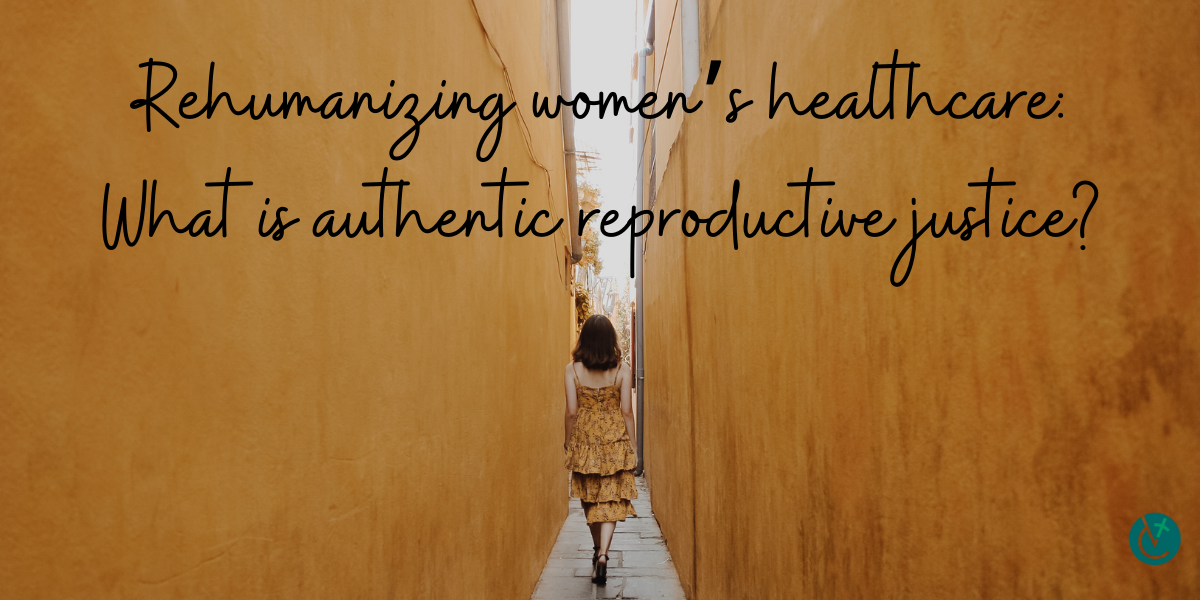
Rehumanizing women’s healthcare: What is authentic reproductive justice?
I love women’s health. It was my favorite class in medical school.
Yet, I had to wrestle with the dark history of women’s healthcare, a history steeped in unethical medical experimentation, half-truths, manipulation, abuse, control.
How could I be part of medicine with such dark history? How could I work to bring light into this darkness and allow the wounds of the past to be transformed into healing, into a more humane future?
Currently, we stand on the cusp of another significant point in reproductive healthcare with Article 22, that espouses “personal reproductive liberty.”
While it may not be that those in politics, finance, business, law, scientific research and medicine are more intelligent than “the rest of us,” those in specialized fields are more fluent in a technical language, creating an exclusive field of discourse confusing to the non-specialist.
Sometimes this fluency in specialized knowledge can be used in ways that manipulate. Ambiguous language is often intentional so that the desired meaning can be applied later, once passed into law.
The vague language of Article 22, “personal reproductive liberty,” has many loopholes for the human person to be used, manipulated for scientific research/experimentation and financial gain.
We all need to take responsibility for our healthcare and bodily autonomy and not be gullible or naïve. Easier said than done, I understand.
Though intentionally vague, such terminology of “personal reproductive liberty” can be accurately described when viewed from the right perspective.
What does authentic reproductive liberty look like??
It looks like grown adults truly understanding how their bodies work. It looks like women knowing why ovulation is a “vital sign,” and how estrogen and progesterone are important for overall physical and mental health. It looks like being empowered with true body literacy, empowered to make fully informed decisions concerning your reproductive health.
Our understanding promotes our liberty. This term deserves consideration.
Liberty, or freedom is the right to act in accordance with our fully human nature on a level worthy of human persons. Freedom is the capacity to love. Freedom exists for love and true love requires freedom. Consent is not the end of the story. Consent isn’t always about whether you can say yes; it’s also whether you can say no. If we don’t have true freedom and true choice, then it isn’t freedom.
Defining personal reproductive liberty with accuracy would better protect men and women from manipulation. Doing so requires an integrated knowledge of human persons, procreation and authentic freedom. Such a perspective is best exemplified in the work of Dr. Thomas Hilgers and the Creighton Model, a system of procreative healthcare that upholds the dignity of the human person and provides authentic reproductive justice.
The Creighton Model FertilityCare™ System – named after Creighton University, the location of the early research — was developed in the 1970s by Dr. Thomas Hilgers, OB/GYN in direct response to the call to action in “Humane Vitae” (“Of Human Life”), an encyclical written by Pope Paul VI
Viewing the human person as the greatest good and human procreation as an understandable, natural truth led Hilgers to scientific investigations that would not otherwise have occurred to him. Rather than seeking to violate the laws of nature, he sought to understand more fully the complex natural workings of the ovulation and menstrual cycles. This approach has led to a healthcare system that is supported by the best available scientific data and is at the service of human persons and human procreation.
This healthcare system empowers men and women to embrace and appreciate the beauty of their bodies and the gift of their fertility.
It empowers women to be truly informed and active participants in their own healthcare, to reclaim authentic bodily autonomy by understanding how their bodies work.
This is a truly compassionate approach that supports healing spiritually, emotionally, psychologically, physically and relationally.
So, despite the intentionally ambiguous language in the state’s attempt to govern women’s health, the very terms used, (i.e. “personal reproductive liberty) only take on meaning when we affirm the human person as the greatest good and procreation as a truth worthy of reverence and deep understanding.
—Dr. Jessica Ann Whelan is a naturopathic doctor with a practice in St. Albans and a Creighton Model FertilityCare medical consultant.
—Originally published in the Summer 2022 issue of Vermont Catholic magazine.

